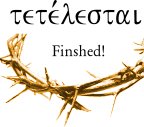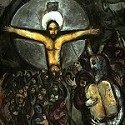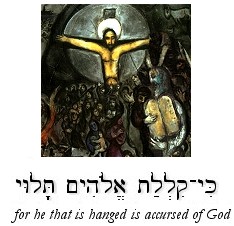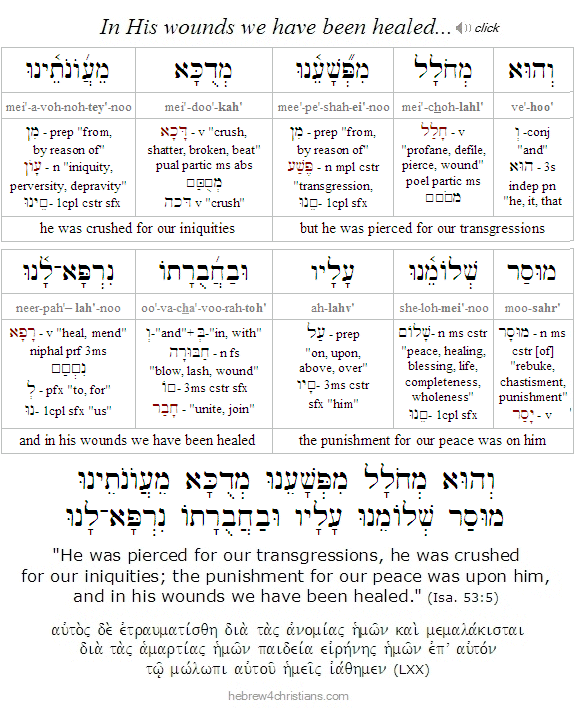|
In last week's Torah reading (Shoftim), Moses defined an extensive system of justice for the Israelites and pointed to the coming Messiah who would be the rightful King of Israel. In this week's portion, Moses returns to the immediate concern of the conquest of the Promised Land by providing a number of specific laws and instructions to be enforced regarding civil life in Israel.
Jewish tradition identifies no less than 74 of the Torah's 613 commandments in Ki Teitzei (making it the most "legalistic" of all the Torah portions), covering a wide assortment of rules related to ethical warfare, family life, burial of the deceased, property laws, the humane treatment of animals, fair labor practices, and honest economic transactions. Some of the specific topics mentioned in this week's portion include the treatment of females captured in war, the inheritance rights for firstborn sons, the case of the "rebellious son" who was to be put to death, and the law regarding the treatment of a body of someone who had been executed.
Of particular interest to us is the statement that a man who was executed and "hanged on a tree" (עַל־עֵץ) is under the curse of God (Deut. 21:22-23). According to the Talmud (Nezakim: Sanhedrin 6:4:3), the Great Sanhedrin (סַנְהֶדְרִין גְדוֹלָה) decided that "a man must be hanged with his face towards the spectators" upon a wooden stake, with his arms slung over a horizontal beam. It should be noted that while this is technically not the same thing as the gruesome practice of Roman crucifixion, the reasoning based on this verse was apparently used to justify the execution of Yeshua (Mark 15:9-15; John 19:5-7; 15). The exposed body was required to be buried before sundown to keep the land from being defiled. Besides the shame and degradation of this manner of death, the one so executed would be unable to fall to their knees as a final act of repentance before God, thereby implying that they were under the irrevocable curse of God (קִלְלַת אֱלהִים).
In this connection, we should note that Yeshua was falsely charged with blasphemy before the corrupt Sanhedrin of His day (Matt. 26:65; Mark 14:64; John 10:33) - an offence that was punishable by stoning (Lev. 24:11-16). However, since the Imperial Roman government then exercised legal hegemony over the region of Palestine, all capital cases were required to be submitted to the Roman proconsul for adjudication, and therefore we understand why the Jewish court remanded Yeshua and brought him to be interrogated by Pontius Pilate. Because Roman law was indifferent to cases concerning Jewish religious practices (i.e., charges of blasphemy), however, the priests further slandered Yeshua by illegitimately switching the original charge of blasphemy to that of sedition against Rome. The Sanhedrin undoubtedly rationalized their duplicity because the Torah allowed for an offender to impaled or "hung on a tree" (Num. 25:4), and since they were unable to do carry out this judgment because of Roman rule in the area, they needed Pilate to condemn him to death by crucifixion (Matt. 27:31; Mark 15:13-4; Luke 23:21; John 19:6,15). Note that crucifixion is mentioned elsewhere in the Talmud (Nashim: Yevamot 120b) regarding whether a widow can remarry if her husband had been crucified, as well as by the Jewish historian Josephus. The Talmud furthermore alludes to the death of Yeshua where Yeshua is said to have been crucified on "eve of Passover" (Nezekin: Sanhedrin 43a).
The apostles of Yeshua understood the connection between this provision in the Torah and the salvation of the LORD as a way of explaining how the substitutionary death of Yeshua satisfied God's wrath for sin on our behalf (there was no way to impute sin without also imputing its penalty). Therefore the Apostle Paul wrote, "The Messiah redeemed us from the curse of the law (קִלְלַת הַתּוֹרָה) by becoming a curse (קְלָלָה) for us - for it is written, "Cursed is everyone who is hanged on a tree" (Gal. 3:13). The Apostle Peter also had this in mind when he wrote: "The God of our fathers raised Yeshua, whom you killed by hanging him on a tree" (Acts 5:30; cp. Acts 10:39-40); and, "He himself bore our sins in his body on the tree, that we might die to sin and live to righteousness. By his wounds you have been healed" (1 Peter 2:24). And of course the prophet Isaiah foretold of the sacrfice of the "Suffering Servant" centuries before the advent of Yeshua:
וְהוּא מְחלָל מִפְּשָׁעֵנוּ מְדֻכָּא מֵעֲוֹנתֵינוּ
מוּסַר שְׁלוֹמֵנוּ עָלָיו וּבַחֲבֻרָתוֹ נִרְפָּא־לָנוּ
ve·hoo me·cho·lal mee-pe'·sha·ei'·noo me·doo·ka me·a·vo·no·tey'·noo
moo·sar she·lo·mei'·noo a·lav oo·va·cha·voo·ra·to neer·pa- la'·noo

"But he was pierced for our transgressions, he was crushed for our iniquities,
the correction of our peace was upon him, and by his wound we are healed"
(Isa. 53:5)
There can be no remission of sin without the shedding of blood (Lev. 17:11, Heb. 9:22), and the sacrificial death of Yeshua as the "Lamb of God" was intended not only to cleanse us from sin (to remove the curse), but also to fully satisfy God's justice and holiness (impute God's blessing and grace). The cross is the place where Yeshua became sin for us - the One who knew no sin - that we might be made the righteousness of God (2 Cor. 5:21). Just before Yeshua died, he said something of tremendous significance. Eyewitnesses to his crucifixion wrote, "When he had received the drink, Yeshua said, 'It is finished.' With that, he bowed his head and gave up his spirit" (John 19:30; Matt. 27:50). In Koine Greek, this final statement is recorded as a single word: tetelestai (Τετέλεσται). In Hebrew, Yeshua might have uttered, "nishlam" (נִשְׁלָם) or perhaps "kullah" (כּוּלָּה).

In Greek, the word tetelestai (Τετέλεσται) is an "indicative perfect passive" form of the verb teleo (τελέω) which implies that something has been completed with an enduring effect or state. The verb comes from telos (τέλος), a noun meaning a goal or purpose. Telos is the word Paul used when he wrote: "For Messiah is the end of the law (τέλος νόμου) for righteousness to everyone who believes" (Rom 10:4).
Tetelestai was the cry of victory to the Father. "I have finished the work you gave me to do." What was that work? To establish the new covenant (brit chadashah) between God and man by offering up His life as the atoning sacrifice for humanity's sins (Heb. 1:3, 10:12). The priesthood of Yeshua is said to be after the "order of Malki-Tzedek," based on a direct oath from God, that predates the operation of the Levitical priesthood (for more information about the role of Yeshua as our High Priest, see the article "Yom Kippur and the Gospel"). Yeshua was the only Tzaddik who ever completely walked out the truth of Torah. He expressed its inner meaning perfectly and embodied its truth in full. The Akedah of Yeshua (i.e., His crucifixion at Moriah) was the altar where the justice and chesed (love) of the Father fully met. If God were not just, Yeshua did not need to die; and if God were not loving, He would not have given up His Son as a ransom for our sin. Justice and mercy kiss.
The Torah (i.e., law) is holy, just and good (Rom. 7:12), but those seeking righteousness based on it's demands will discover the tragic fact that it is powerless to impart righteousness and life (2 Cor. 3:7-18). It is sin within the human heart that condemns people - not the law! The crucifixion of Yeshua condemned sin in the flesh (again, not the law) and now the righteousness of God is imparted to those who embrace Yeshua by faith (Rom. 8:3-4). Enabled by the Holy Spirit, with the law now written upon our hearts (Jer. 31:31-3; Heb. 8:10-11), we are empowered to fulfill the requirements of the law based on a new covenant relationship with God (Gal. 2:16, 3:2). We no longer seek righteousness by means of maintaining ritualistic or other ordinances (Rom. 4:5, Gal. 2:16) but by receiving the free gift of Messiah's righteousness imputed to us through our trust (Eph. 2:8-9). Because of Yeshua's victory, we do not strive for acceptance before the Father, we abide within it, chaverim (John 15:4).
Imagine for a moment what it might have been like to hear Yeshua cry out, "It is finished!" His final breath, His kiddush Hashem, His spirit given up and now released before the Father - the resonance of this word filling all heaven and all earth - "It is finished! Father! It is finished! I have completed the work that you have given me to do!" Imagine the joy, the celebration, the glory, the honor given to the Son as He appeared before the Father after securing us so great a salvation.
Because Yeshua became our "serpent" upon the cross, all those who have been bitten by snake and poisoned by the venom of sin may be delivered. Just as the image made in the likeness of the destroying snake was lifted up for Israel's healing, so the One made in the likeness of sinful flesh (Rom. 8:3) was to be lifted up as the Healer of the world. Likewise with the other pictures of our Savior as the "leper Messiah," as the "red heifer" who purifies from death, as the "scapegoat" sacrifice who sends our sins into exile, and so on. Yeshua is Adonai Tzidkenu - the LORD our Righteousness. Blessed be His Name forever and ever...
|





